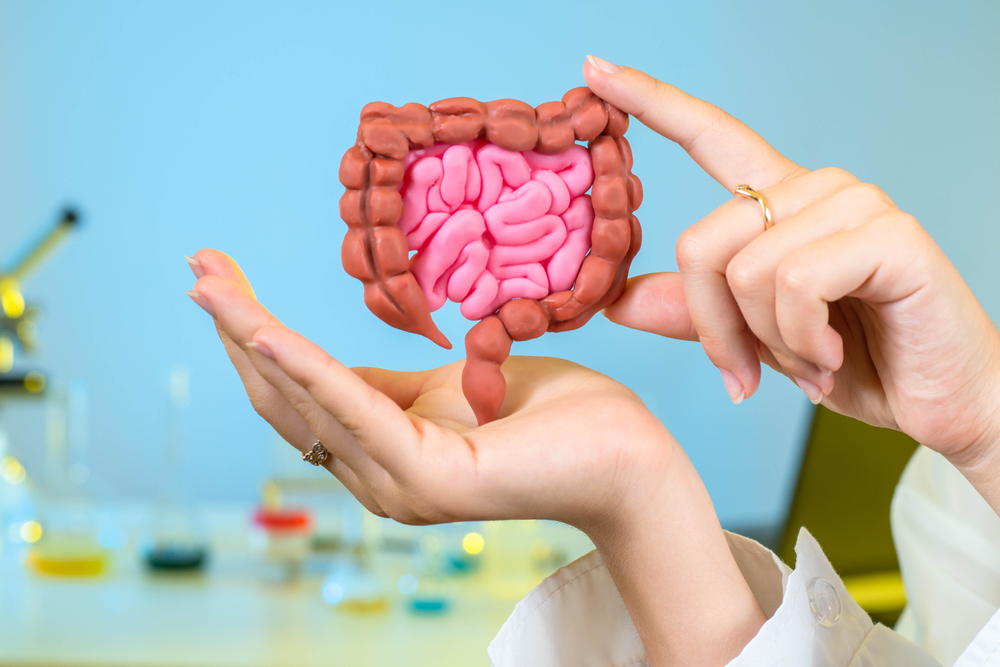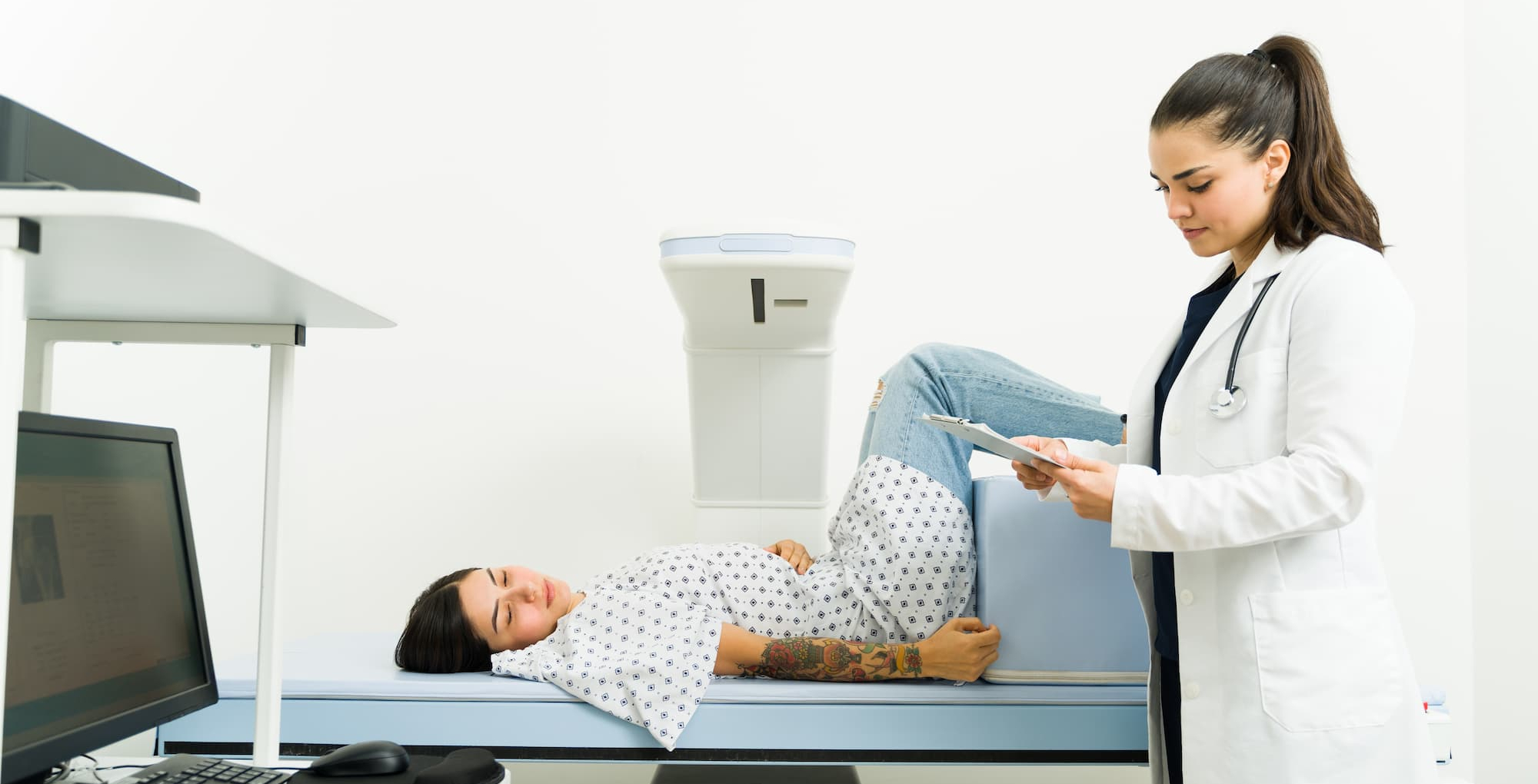Maintaining digestive health is crucial for efficient digestion and overall health. Healthy eating habits, regular exercise, and managing stress levels are key factors in promoting digestive health.
Additionally, avoiding processed and high-fat foods, limiting alcohol intake, and getting enough sleep can positively impact the digestive system. Prioritising digestive health can lead to a better quality of life and overall well-being.
Improving your digestive health is essential for better overall health and well-being. If you’re unsure where to begin, try implementing these strategies into your daily routine to enhance the efficiency of your digestive system and maintain optimal health.
The role of the digestive system


According to Harvard researchers, our body relies on the digestive system to break down food into chemical components that are essential for energy, growth, and cell repair. The process starts in the mouth, where food is chewed and mixed with saliva, before moving down to the stomach and small intestine.
In the small intestine, nutrients are absorbed into the bloodstream and transported throughout the body. The large intestine then takes over and absorbs water while eliminating undigested food.
However, digestive issues can arise due to genetics, immune system attacks, or an unhealthy diet.
Some of the most common symptoms of an unhealthy digestive are:
-
Celiac disease
-
Gallstones
-
Heartburn
-
Constipation
-
Irritable Bowel Syndrome (IBS)
-
Diarrhoea
Top ten tips for healthy digestion

Your digestive health is greatly influenced by the foods you consume and your lifestyle. By making conscious efforts to improve your digestive health, you can enhance the efficiency of your digestive system, leading to better overall health, well-being, and, most importantly, longevity.
1Regular exercise

Improving digestion is one of the benefits of regular exercise. When combined with gravity, exercise can aid food digestion throughout your digestive system, making taking a walk after eating a wise choice.
Studies have shown that brief periods of low to moderate exercise can accelerate digestion, while longer and more strenuous exercise can slow it down. Research has also revealed that gentle activities like Qigong, walking, and other physical activities can significantly improve constipation symptoms.
Moreover, exercise has been found to lessen symptoms of inflammatory bowel diseases due to its anti-inflammatory effects, which can help decrease inflammatory compounds in your body.
2Stay hydrated
One of the underlying reasons for constipation is a lack of proper fluid intake. The Centers for Disease Control and Prevention (CDC) typically recommends drinking between 1.5 to 2 litres of water per day to keep your digestive system functioning correctly.
However, if you live in an area with a warm climate or engage in regular physical activity, it’s best to increase this amount by an additional litre. Staying adequately hydrated not only improves your digestive health but also aids in joint health, regulates your body temperature, and flushes toxins out of your system.
Therefore, it’s crucial to ensure you’re drinking enough water daily to maintain overall health and wellness.
3Stick to a regular eating schedule
Experts in the field of nutrition and dietetics concur that maintaining a consistent schedule for meals and snacks is essential for optimal digestion. Regularly spaced meals, including breakfast, lunch, dinner, and snacks, should be consumed at approximately the same time each day to allow for proper digestion of your food. When meals are consumed irregularly, it causes an undue strain on the digestive system, which can lead to uncomfortable symptoms such as bloating and indigestion. To avoid these unpleasant effects, it is recommended that meals are eaten every 3 to 4 hours, allowing your stomach to properly digest its contents.
4Probiotics and prebiotics

The microorganisms referred to as probiotics are essentially the same healthy bacteria that are naturally present in your digestive tract. They play a crucial role in maintaining the overall health of your body by counteracting the negative effects of an unhealthy diet, antibiotics, and stress.
Harvard researchers suggest incorporating probiotics into your daily diet is highly recommended, as they can significantly improve nutrient absorption, aid in lactose breakdown, prevent Irritable Bowel Syndrome (IBS), and generally boost your immune system.
To obtain probiotics, consider consuming low-fat yoghurt or kefir daily, as they are excellent sources of these beneficial microorganisms.
5Limit processed meat
Recent studies suggest that consuming large quantities of processed and red meat can have negative effects on your digestive system. These types of meats are often high in chemicals and additives that can be harmful to the body.
Unless you have specific dietary needs, it is recommended to limit your intake to no more than three servings per week. Instead of using processed or red meat as your main course, try incorporating it into side dishes. Additionally, you can consider replacing meat with beans, which are an excellent source of protein.
6Limit alcohol and caffeine

Avoid engaging in habits that could be detrimental to your health, such as consuming excessive caffeine and drinking alcohol.
Studies show that the consumption of alcohol and an excessive amount of coffee or other caffeinated beverages can have negative effects on the functioning of your digestive system, leading to issues such as:
-
Stomach ulcers
-
Heartburn
-
Numerous digestive orders
-
Acid reflux
-
Irritable Bowel Syndrome (IBS)
Therefore, it is important to be mindful of these habits and strive to maintain a healthy lifestyle.
7Increase fibre intake
Incorporating a diet that is high in fibre can greatly benefit your digestive health. The presence of fibre in your food helps to facilitate the movement of food through your digestive tract, ultimately decreasing the likelihood of experiencing constipation.
Additionally, consuming a high-fibre diet may aid in the treatment and prevention of various digestive issues, such as haemorrhoids and irritable bowel syndrome (IBS).
To ensure your diet is high in fibre, be sure to incorporate:
-
Legumes
-
Whole grains
-
Nuts
-
Seeds
-
Fruit
-
Vegetables
8Include healthy fats

Maintaining good digestion is essential for overall health, and one way to achieve this is by consuming an adequate amount of fat. Not only does fat help you feel full after a meal, but it is also necessary to properly absorb nutrients, including vitamins A, D, E, and K.
In addition, research has indicated that consuming omega-3 fatty acids may reduce the likelihood of developing inflammatory bowel diseases, such as ulcerative colitis; however, further studies are required to confirm this.
According to the National Institutes of Health (NIH), many foods are rich in omega-3 fatty acids and can be easily incorporated into your diet.
-
Flaxseeds and chia seeds
-
Nuts, especially walnuts
-
Salmon, tuna, mackerel, and sardines
Incorporating these omega-3-rich foods into your diet can help you maintain good digestive health and support overall well-being.
9Stop smoking
It is important to note studies published by the National Institutes of Health (NIH) show that smoking significantly increases the risk of gastroesophageal reflux disease (GERD). However, quitting smoking has been proven to improve symptoms of acid reflux.
Furthermore, smoking has been directly linked to stomach ulcers and a heightened likelihood of surgeries for individuals with ulcerative colitis or gastrointestinal cancers.
If you are currently experiencing digestive issues and smoke cigarettes, it is highly recommended to consider quitting for potential health benefits.
10Stress management
Did you know that studies have shown that stress can have a negative impact on your digestive system?
Stress can cause:
-
Ulcers
-
Diarrhoea
-
Irritable Bowel Syndrome (IBS)
The gut and brain are also linked, so what affects the brain may also impact digestion. However, other studies show that proven stress management techniques such as relaxation training, meditation, and yoga can help alleviate digestive symptoms.
By incorporating these techniques, you can improve both your mindset and your digestion.
Sum it up

To improve your digestion, incorporate whole foods that are high in fibre, healthy fats, and nutrients into your diet. Additionally, practising mindful eating, exercising regularly, and reducing stress can also be helpful.
If you experience digestive symptoms, try quitting smoking, limiting alcohol consumption, and avoiding eating late at night. These habits can effectively relieve your symptoms.
Want to learn more?
In this informative podcast, Dr. Justin Sonnenburg, a Professor of Microbiology & Immunology at Stanford University, discusses the impact of gut microbes on mental and physical health, as well as how diet and environment affect the gut microbiome.
Dr. Sonnenburg discusses the gut microbiome’s architecture and variability in different GI tract regions can change in response to diet, environment, or genetics. He also looks at how lifestyle factors can alter the microbiome, which plays an integral role in communicating with other organs, including the brain.








